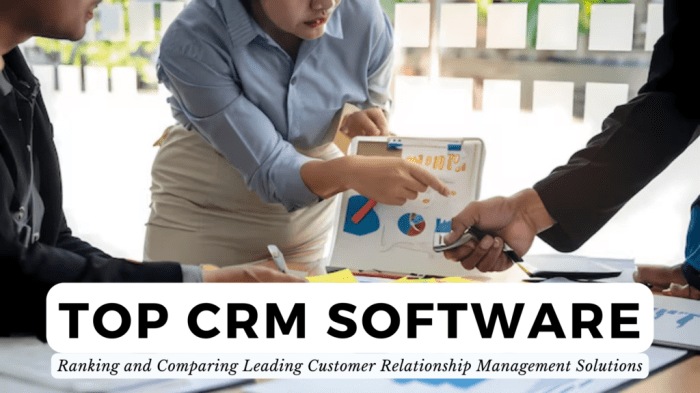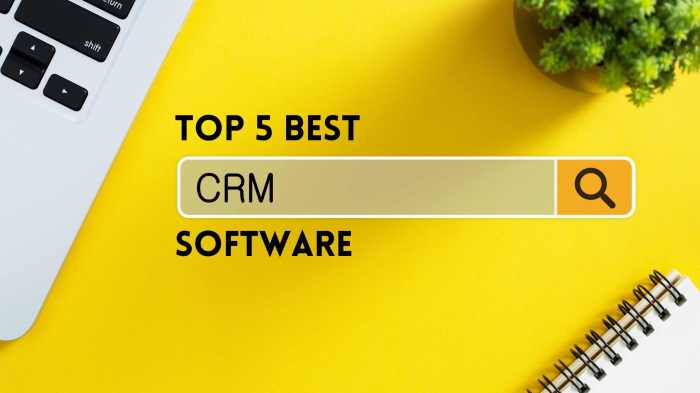Project management software with crm – In today’s dynamic business environment, efficient project management and robust customer relationship management (CRM) are no longer optional but essential for sustained growth. Integrating these two crucial functions into a single, streamlined system offers significant advantages, enhancing productivity, improving collaboration, and ultimately driving revenue. This comprehensive guide explores the synergy between project management software and CRM, highlighting their individual benefits and the powerful impact of their combined functionality.
We’ll delve into key features, selection criteria, and frequently asked questions to help you make informed decisions for your organization.
Understanding the Individual Powerhouses: Project Management and CRM
Project Management Software: The Engine of Efficiency, Project management software with crm
Project management software serves as a central hub for planning, executing, and monitoring projects. It provides tools for task assignment, deadline setting, progress tracking, resource allocation, and communication. Key features often include:
- Gantt charts: Visual representations of project timelines and dependencies.
- Kanban boards: Agile project management tools for visualizing workflow.
- Task management: Assigning tasks, setting deadlines, and tracking progress.
- Collaboration tools: Facilitating communication and information sharing among team members.
- Reporting and analytics: Monitoring project performance and identifying areas for improvement.
- Time tracking: Accurately recording time spent on tasks for better resource allocation and billing.
Popular project management software options include Asana, Trello, Monday.com, Jira, and Microsoft Project. The choice depends on the size of your organization, project complexity, and specific needs.
CRM Software: The Heart of Customer Relationships
CRM software is designed to manage and analyze customer interactions and data throughout the customer lifecycle. Its core functionalities include:
- Contact management: Storing and organizing customer information (contact details, purchase history, communication logs).
- Sales pipeline management: Tracking leads, opportunities, and sales progress.
- Marketing automation: Automating marketing tasks like email campaigns and social media updates.
- Customer service support: Managing customer inquiries and resolving issues efficiently.
- Reporting and analytics: Analyzing customer behavior and identifying trends.
- Integration with other systems: Connecting with email, social media, and other business applications.
Examples of leading CRM systems include Salesforce, HubSpot, Zoho CRM, and Microsoft Dynamics 365. Selecting the right CRM depends on your business size, industry, and specific requirements for customer interaction management.
The Synergistic Power of Integrated Project Management and CRM
Integrating project management software with CRM creates a powerful synergy, enhancing efficiency and providing a holistic view of your business operations. Here’s how:
- Improved project visibility: Connect projects directly to specific customers or clients, providing a clear view of project progress and its impact on customer relationships.
- Enhanced collaboration: Seamlessly share project updates and information with relevant customer-facing teams, ensuring everyone is on the same page.
- Streamlined communication: Centralize communication channels, reducing the risk of miscommunication and improving response times.
- Better resource allocation: Optimize resource allocation by linking project requirements to customer needs and priorities.
- Improved customer satisfaction: Deliver projects on time and within budget, enhancing customer satisfaction and loyalty.
- Data-driven decision making: Gain valuable insights into project performance and customer behavior, enabling data-driven decisions to optimize both project execution and customer relationships.
- Increased sales opportunities: Identify new sales opportunities by tracking project progress and customer interactions.
Choosing the Right Integrated Solution: Key Considerations
Selecting the right integrated project management and CRM solution requires careful consideration of several factors:
- Business size and complexity: Choose a solution that scales with your business growth.
- Budget constraints: Consider the cost of the software, implementation, and ongoing maintenance.
- Integration capabilities: Ensure seamless integration with existing systems.
- User-friendliness: Select a solution that is easy to use and adopt by your team.
- Customization options: Choose a solution that can be customized to meet your specific needs.
- Scalability: Ensure the solution can handle increasing data volumes and user numbers.
- Security features: Prioritize data security and compliance with industry regulations.
Frequently Asked Questions (FAQ)
- Q: What are the benefits of integrating project management and CRM?
A: Integration provides improved project visibility, enhanced collaboration, streamlined communication, better resource allocation, increased customer satisfaction, data-driven decision-making, and increased sales opportunities. - Q: How much does integrated project management and CRM software cost?
A: Costs vary significantly depending on the features, scalability, and vendor. Expect a range from affordable monthly subscriptions to substantial upfront investments for enterprise solutions. - Q: What are some examples of integrated project management and CRM software?
A: Many platforms offer integrated solutions or robust APIs for connecting separate systems. Examples include Salesforce with its various project management apps, HubSpot with its project management features, and Zoho One, which bundles multiple applications. - Q: How do I choose the right integrated solution for my business?
A: Consider your business size, budget, integration needs, user-friendliness requirements, customization options, scalability, and security features. Start by defining your specific needs and then evaluate different solutions based on these criteria. - Q: Is it difficult to implement integrated project management and CRM software?
A: The implementation complexity depends on the chosen solution and your existing IT infrastructure. Some solutions offer easy setup and onboarding, while others may require professional assistance.
Conclusion: Embrace the Power of Integration
Integrating project management software with CRM is a strategic move that can significantly enhance your business operations. By streamlining workflows, improving communication, and providing a holistic view of your projects and customer relationships, you can unlock significant improvements in efficiency, productivity, and ultimately, revenue. Take the time to carefully evaluate your needs and explore the available options to find the perfect integrated solution for your organization.
References
Call to Action: Project Management Software With Crm
Ready to transform your business operations? Explore the power of integrated project management and CRM software today! Contact us for a free consultation to discuss your specific needs and find the perfect solution for your organization.
Answers to Common Questions
What are the key benefits of using project management software with CRM?
Improved collaboration, enhanced client communication, streamlined workflows, better resource allocation, improved project visibility, and data-driven decision-making.
How does CRM integration improve project management?
It provides a 360-degree view of clients, allowing for better understanding of their needs and preferences, leading to more effective project planning and execution. It also facilitates seamless communication and reporting.
What types of businesses benefit most from this integration?
Businesses with complex projects, multiple clients, and a need for strong client relationships, such as marketing agencies, consulting firms, and software development companies.
What are some common challenges in implementing project management software with CRM?

Source: subscribed.fyi
Data migration, system integration complexities, user adoption, and the need for adequate training.
Are there any security concerns associated with this type of software?

Source: cloudfront.net
Yes, data security is paramount. Choose reputable vendors with robust security measures and comply with relevant data privacy regulations.
